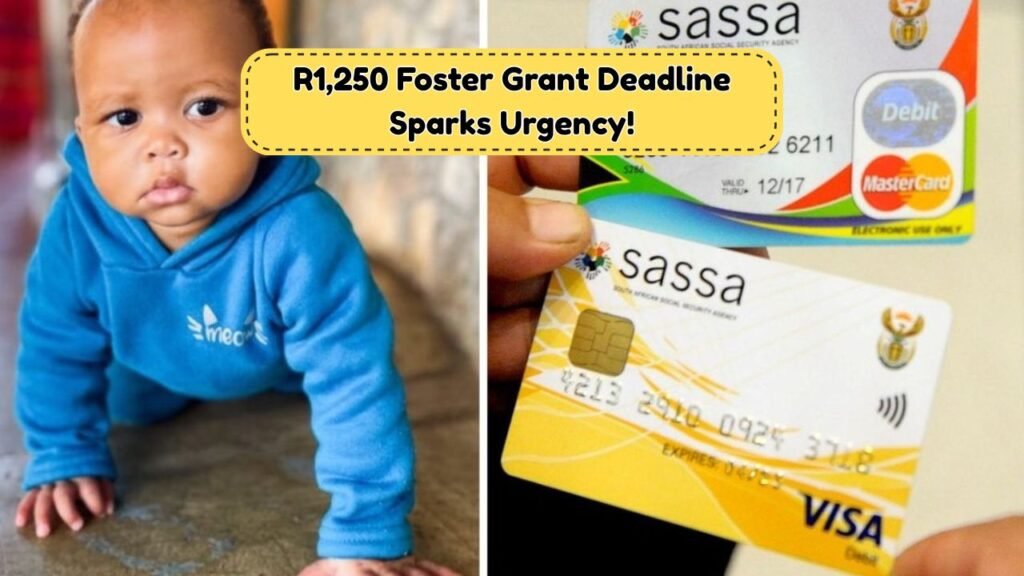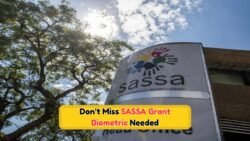Unlock R1,250 Foster Child Grant: Essential September 2025 Application Guide: Navigating the complexities of applying for the R1,250 Foster Child Grant in South Africa can feel overwhelming, but understanding the process is crucial for caregivers. As September 2025 approaches, families looking to benefit from this government support need to be well-informed about the requirements and steps involved. This grant offers vital financial assistance to those providing foster care, ensuring that children in need can grow up in a stable and nurturing environment. Here’s a detailed guide to help prospective applicants secure this essential aid.

Understanding the R1,250 Foster Child Grant in South Africa
The R1,250 Foster Child Grant plays a significant role in aiding South African families who take up the responsibility of fostering children. This initiative by the government aims to lessen the financial burden on caregivers, allowing them to provide better support and a more nurturing environment for children in need. In 2025, the grant remains a crucial part of the government’s commitment to child welfare. To qualify, applicants must meet specific criteria, including legal foster care status and the child’s age, typically under 18 unless still in school. The grant amount, set at R1,250, is designed to assist with the child’s basic needs, covering essential expenses such as food, clothing, and educational materials. With the increasing cost of living, this financial support becomes even more critical, ensuring that foster children have access to the resources necessary for their development and well-being. Understanding these aspects is the first step for any caregiver looking to apply.
How to Apply for the Foster Child Grant by September 2025
Securing the R1,250 Foster Child Grant requires navigating a specific application process that ensures the right families receive support. By September 2025, aspiring applicants should prepare to meet all necessary requirements. The process begins with gathering essential documents, including the child’s birth certificate, proof of foster care status, and the caregiver’s identification. It’s crucial to have legal documents that verify the foster arrangement, as the South African Social Security Agency (SASSA) mandates these for eligibility. Applicants must visit their local SASSA office to submit these documents in person, where an official will guide them through the application process. Once submitted, the application undergoes verification, ensuring all criteria are met. The approval process may take several weeks, so starting early is advisable to avoid delays. Understanding these steps and preparing adequately can help caregivers secure the grant efficiently, providing much-needed support for their foster children.
Common Challenges in the Foster Child Grant Application Process
While the R1,250 Foster Child Grant provides essential support, applicants often face challenges that can complicate the process. One major hurdle is the documentation required, which must be current and legally binding. Incomplete or outdated paperwork can lead to delays or rejections, making it imperative for applicants to ensure all documents are in order before submission. Additionally, misconceptions about eligibility can cause confusion; for instance, assuming guardianship without formal foster care status does not qualify for the grant. Many applicants also underestimate the time needed for application processing, leading to frustration when funds are delayed. To mitigate these issues, it’s beneficial for caregivers to seek guidance from social workers or legal advisors who can provide clarity on the necessary steps and assist in ensuring all criteria are met. By addressing these common challenges head-on, applicants can improve their chances of a smooth and successful application experience.
Maximizing the Benefits of the Foster Child Grant in South Africa
Once the R1,250 Foster Child Grant is secured, caregivers can focus on optimizing its benefits for the child’s development. Effective budgeting is key to making the most of the grant. Prioritizing essential needs such as nutrition, healthcare, and education ensures that the child’s well-being is adequately supported. Additionally, caregivers are encouraged to explore community resources that offer supplementary support, such as educational programs and healthcare services. By leveraging these additional resources, families can enhance the quality of care provided. Networking with other foster families can also yield valuable insights and strategies for managing the challenges of foster care. Moreover, staying informed about any changes in grant policies or additional government support measures can help caregivers adapt and maximize the assistance available. In doing so, foster families can create a nurturing and supportive environment, laying a strong foundation for the child’s future.




